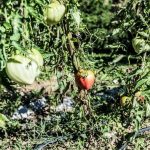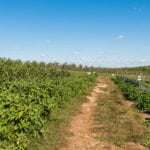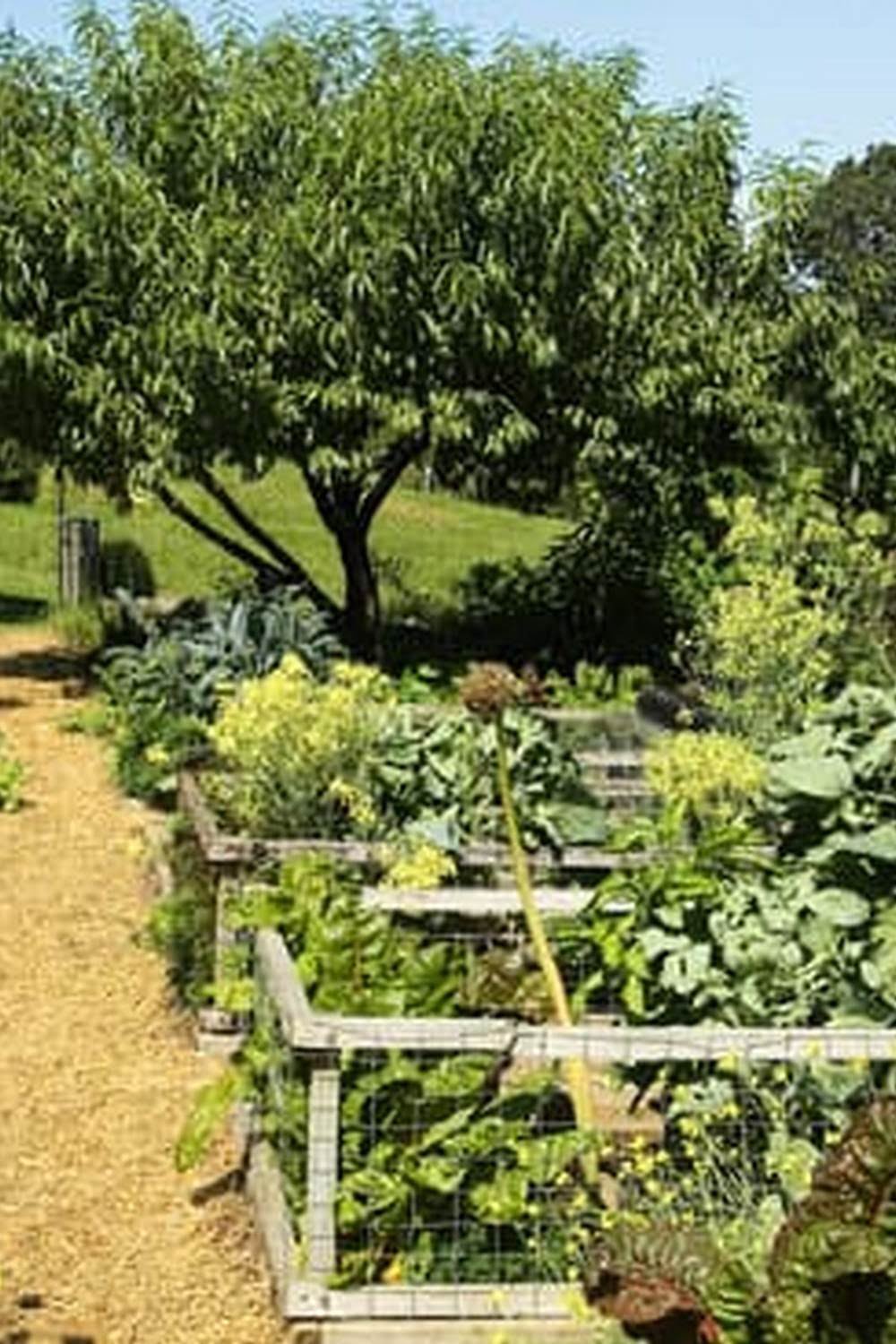Glyphosate, a common herbicide used in agriculture, has been a topic of concern when it comes to its use in vegetable gardens. With the aim of addressing these concerns, this article delves into the potential dangers that glyphosate poses, the impact it can have on vegetable crops and soil health, as well as the regulation surrounding its use in vegetable gardens.
Glyphosate is an active ingredient found in many weed killers and has become popular for its effectiveness in killing unwanted plants and weeds. However, its use has raised questions about its safety when it comes to maintaining vegetable gardens. This article will explore the various aspects of glyphosate use in vegetable gardens – from understanding its potential dangers to providing alternatives for garden maintenance without relying on glyphosate.
As we delve into this topic, we will discuss how glyphosate contamination can affect vegetable crops and soil health, along with tips for preventing such contamination in vegetable gardens. Additionally, we will look at the importance of choosing glyphosate-free products for safe and healthy practices in vegetable garden maintenance. Stay tuned as we uncover valuable insights into promoting safe and healthy practices despite concerns surrounding glyphosate in vegetable gardens.
The Potential Dangers of Glyphosate in Vegetable Gardens
Glyphosate, a widely used herbicide in agriculture, has raised concerns about its potential dangers when used in vegetable gardens. While glyphosate is effective at killing weeds, it can also pose risks to human health and the environment. In this section, we will explore the potential dangers of glyphosate in vegetable gardens and how its use can impact the safety of vegetable crops.
Health Concerns
One of the primary dangers of glyphosate in vegetable gardens is the potential health risks associated with exposure to this herbicide. Studies have suggested that glyphosate may be linked to certain health issues, including cancer and reproductive problems. When glyphosate is used in vegetable gardens, there is a risk of contamination on the vegetables themselves, which could pose a threat to human health if consumed.
Environmental Impact
In addition to health concerns, glyphosate can also have a detrimental impact on the environment when used in vegetable gardens. Runoff from treated areas can find its way into water sources and negatively affect aquatic ecosystems. The use of glyphosate can also harm non-target plants and beneficial insects, disrupting the natural balance of the garden ecosystem.
Residue on Vegetable Crops
One of the most significant dangers of using glyphosate in vegetable gardens is the potential for residue on vegetable crops. Even if applied properly, there is still a risk that trace amounts of glyphosate could end up on fruits and vegetables. This raises concerns about the safety of consuming produce from contaminated gardens and underscores the need for caution when using herbicides near edible crops.
As concerns about glyphosate in vegetable gardens continue to grow, it’s important for gardeners to consider alternative methods for weed control and prioritize safe practices to protect both human health and the environment.
How Glyphosate Contamination Can Affect Vegetable Crops
Glyphosate contamination can have a significant impact on vegetable crops, affecting both the quality and safety of the produce. When glyphosate comes into contact with vegetable plants, it can be absorbed through the roots and foliage, leading to potential health risks for consumers. Studies have shown that glyphosate residue can remain in vegetables even after washing and cooking, posing a threat to human health when consumed.
One of the main concerns regarding glyphosate in vegetable gardens is its potential to disrupt the natural growth and development of crops. Glyphosate has been linked to stunted plant growth, reduced crop yields, and decreased nutrient absorption in vegetables. This can result in smaller, less nutritious produce that may not reach its full potential in terms of flavor and overall quality.
In addition to affecting the immediate harvest, glyphosate contamination can also have long-term consequences for soil health in vegetable gardens. Glyphosate has been found to inhibit the growth of beneficial soil microorganisms and earthworms, which are essential for maintaining fertile and well-structured soil. This disruption of the soil ecosystem can lead to poor soil fertility, decreased water retention, and increased susceptibility to erosion.
| Glyphosate Contamination Impact | Vegetable Crops |
|---|---|
| Reduced crop yields | Stunted plant growth |
| Potential health risks for consumers | Decreased nutrient absorption in vegetables |
| Long-term consequences for soil health | Inhibit the growth of beneficial soil microorganisms and earthworms |
Alternatives to Using Glyphosate in Vegetable Garden Maintenance
When it comes to maintaining a vegetable garden, many people rely on glyphosate-based herbicides to control weeds and other unwanted plants. However, the use of glyphosate in vegetable gardens has raised concerns about potential health risks and environmental impact. Fortunately, there are alternatives to using glyphosate that can effectively manage weed growth without the potential dangers associated with this chemical.
One alternative to using glyphosate in vegetable garden maintenance is the use of organic weed control methods. These may include mulching with materials such as straw or wood chips, hand weeding, or using natural herbicides derived from plant-based ingredients. Organic weed control methods not only help to manage weed growth but also promote a healthier and more sustainable gardening practice.
Another effective alternative to glyphosate is the use of pre-emergent herbicides in vegetable gardens. Pre-emergent herbicides work by preventing weed seeds from germinating, thereby reducing the need for post-emergent weed control measures. These products are available in both synthetic and organic formulations, providing vegetable gardeners with options for managing weed growth without relying on glyphosate-based herbicides.
In addition to organic and pre-emergent herbicides, implementing good cultural practices in your vegetable garden can also help reduce the need for glyphosate. This includes practices such as proper spacing between plants, regular watering and fertilization, and promoting healthy soil through composting and mulching. By adopting these alternatives to using glyphosate, vegetable gardeners can effectively maintain their gardens while minimizing the potential risks associated with this controversial chemical.
Tips for Preventing Glyphosate Contamination in Vegetable Gardens
Glyphosate, a widely used herbicide in agriculture, has raised concerns about its potential dangers when used in vegetable gardens. Many studies have suggested that glyphosate can negatively impact soil health and contaminate vegetable crops, posing a risk to human health. In order to prevent glyphosate contamination in vegetable gardens, it is essential for gardeners to be aware of the alternatives to using glyphosate and to understand the regulations surrounding its use.
One way to prevent glyphosate contamination in vegetable gardens is by exploring alternative methods for weed control. This can include manual weeding, mulching, or using organic herbicides that do not contain glyphosate. By embracing these alternative methods, gardeners can effectively maintain their vegetable gardens without the need for glyphosate-based products.
In addition to exploring alternative weed control methods, it is crucial for gardeners to carefully read product labels and choose glyphosate-free products for their vegetable garden care. This proactive approach can significantly reduce the risk of glyphosate contamination in the garden and promote safe and healthy practices for growing vegetables.
It’s important to note that proper storage and disposal of herbicides containing glyphosate are also important factors in preventing contamination. Gardeners should adhere strictly to the recommended guidelines for handling and disposing of these products to minimize any potential risk of exposure or contamination of their vegetable crops.
| Preventative Tips | Details |
|---|---|
| Explore Alternative Methods | Including manual weeding, mulching, or using organic herbicides |
| Choose Glyphosate-Free Products | Read product labels carefully and select products that do not contain glyphosate |
| Proper Storage and Disposal | Follow recommended guidelines for handling and disposing of herbicides with glyphosate content |
The Impact of Glyphosate on Soil Health in Vegetable Gardens
Glyphosate, a widely used herbicide in agriculture, has raised concerns about its impact on soil health in vegetable gardens. The use of glyphosate in vegetable gardens can lead to potential dangers such as contamination of crops and the soil.
The presence of glyphosate in vegetable gardens can affect the overall soil health, leading to potential negative consequences for plant growth and the environment. Some potential dangers of glyphosate in vegetable gardens include the following:
- Soil disruption
- Decreased microbial activity
- Reduced nutrient availability for plants
Fortunately, there are alternative methods available for maintaining a healthy vegetable garden without relying on glyphosate. These alternatives include:
- Mulching to prevent weed growth
- Hand-weeding to remove unwanted plants
- Using natural herbicides derived from plant-based ingredients
In addition, adopting practices that promote soil health, such as composting and crop rotation, can help mitigate the potential impact of glyphosate on the soil in vegetable gardens. It is important for gardeners to be mindful of the products they use and their potential effects on both plant and environmental health. By choosing glyphosate-free products for vegetable garden care, individuals can contribute to promoting safe and healthy practices in garden maintenance.
Understanding the Regulation of Glyphosate Use in Vegetable Gardens
Glyphosate is a widely used herbicide in commercial agriculture, known for its effectiveness in controlling weeds. However, its use raises concerns when it comes to vegetable gardens. The regulation of glyphosate use in vegetable gardens plays a crucial role in ensuring the safety of consumers and the environment.
Regulatory bodies such as the Environmental Protection Agency (EPA) are responsible for setting limits on glyphosate residues in food products, including vegetables. These limits are based on extensive research and scientific data to determine safe exposure levels for humans. Additionally, the EPA establishes guidelines for the proper application of glyphosate in vegetable gardens to minimize contamination risks.
As part of regulating glyphosate use, the EPA also monitors product labeling and advertising to ensure that manufacturers provide clear instructions and warnings for safe usage. This includes specific guidelines for applying glyphosate near edible crops and requirements for protective gear when handling the herbicide. By enforcing these regulations, regulatory agencies work to mitigate potential hazards associated with glyphosate use in vegetable gardens.
It is important for vegetable gardeners to familiarize themselves with these regulatory standards and comply with recommended practices when using herbicides. By doing so, they can help prevent glyphosate contamination and contribute to safer gardening practices. Here are some key points related to glyphosate regulation:
- Follow label instructions: Always read and follow the label directions on glyphosate products to ensure proper usage.
- Respect buffer zones: Be mindful of recommended distances between treated areas and edible crops to prevent contamination.
- Dispose of containers properly: Adhere to disposal guidelines for empty herbicide containers as specified by regulatory authorities.
By adhering to these regulations and best practices, gardeners can minimize the risk of glyphosate contamination in their vegetable gardens while maintaining effective weed control.
The Importance of Choosing Glyphosate-Free Products for Vegetable Garden Care
When it comes to vegetable garden care, choosing glyphosate-free products is paramount for promoting safe and healthy practices. Glyphosate, a widely used herbicide in agriculture, has come under scrutiny due to its potential dangers and the impact it can have on vegetable gardens. As such, it is crucial for gardeners to be mindful of the products they use in order to ensure the safety and health of their vegetable crops.
Understanding Glyphosate Contamination
Glyphosate contamination in vegetable gardens can occur through various means, such as overspray from nearby agricultural fields, runoff from neighboring properties, or even through the use of contaminated water sources. Even minimal exposure to glyphosate can pose risks to vegetable crops and ultimately affect the safety of the produce grown in the garden. Therefore, being aware of this potential contamination is essential for making informed decisions about choosing glyphosate-free products.
Choosing Safe Alternatives
Fortunately, there are alternative products and methods available for vegetable garden maintenance that do not involve the use of glyphosate. Organic soil amendments, natural weed control methods, and manual weed removal are just a few examples of safer alternatives that can help maintain a healthy and thriving vegetable garden without relying on glyphosate-based products. By opting for these alternatives, gardeners can mitigate the risk of glyphosate contamination and promote sustainable gardening practices.
Seeking Certified Products
When shopping for products to care for your vegetable garden, it is important to look for those that are certified as glyphosate-free or organic by reputable organizations. These certifications provide assurance that the products have been carefully evaluated and do not contain harmful chemicals like glyphosate. By actively choosing certified glyphosate-free options, you can contribute to promoting safe and healthy practices in vegetable garden care while minimizing potential risks associated with glyphosate contamination.
Conclusion
In conclusion, while the use of glyphosate in vegetable gardens continues to be a topic of concern, it is important for gardeners to be mindful of the potential dangers and take proactive steps to minimize its impact on their crops and soil. With the increased awareness of glyphosate contamination and its potential effects on human health and the environment, there has been a growing interest in exploring alternative methods for weed control in vegetable gardens.
By implementing practices such as hand weeding, mulching, and using natural herbicides, gardeners can reduce their reliance on glyphosate and minimize the potential risk of contamination. Additionally, choosing certified organic products and seeds that are free from glyphosate can further promote safe and healthy practices in vegetable garden maintenance.
Ultimately, promoting safe and healthy practices in vegetable garden maintenance despite glyphosate concerns requires vigilance, education, and a commitment to sustainable gardening. By staying informed about the regulation of glyphosate use in vegetable gardens and making conscious choices when it comes to products and methods, gardeners can contribute to a safer and more sustainable approach to growing vegetables. At the same time, they can help protect their crops, soil health, and the well-being of themselves and their communities.
Frequently Asked Questions
Can Glyphosate Be Used in Vegetable Garden?
Glyphosate can be used in a vegetable garden, but it is important to follow the manufacturer’s instructions and guidelines for application. It should be used with caution and only on designated areas to avoid harming the vegetables.
How Long After Using Roundup Is It Safe to Plant Vegetables?
After using Roundup, it is generally recommended to wait at least 3 days before planting vegetables in the treated area. This waiting period allows the herbicide to break down and dissipate, reducing the risk of harming newly planted vegetables.
Will Glyphosate Kill Tomatoes?
While glyphosate can be an effective herbicide for controlling weeds, it can also have negative effects on non-target plants like tomatoes if not used properly. Direct contact with glyphosate can potentially harm or kill tomato plants, so it’s important to follow safety precautions and take preventive measures when using this herbicide in close proximity to tomatoes.

If you’re looking to get into vegetable gardening, or are just looking for some tips on how to make your current garden better, then you’ve come to the right place! My name is Ethel and I have been gardening for years. In this blog, I’m going to share with you some of my best tips on how to create a successful vegetable garden.





